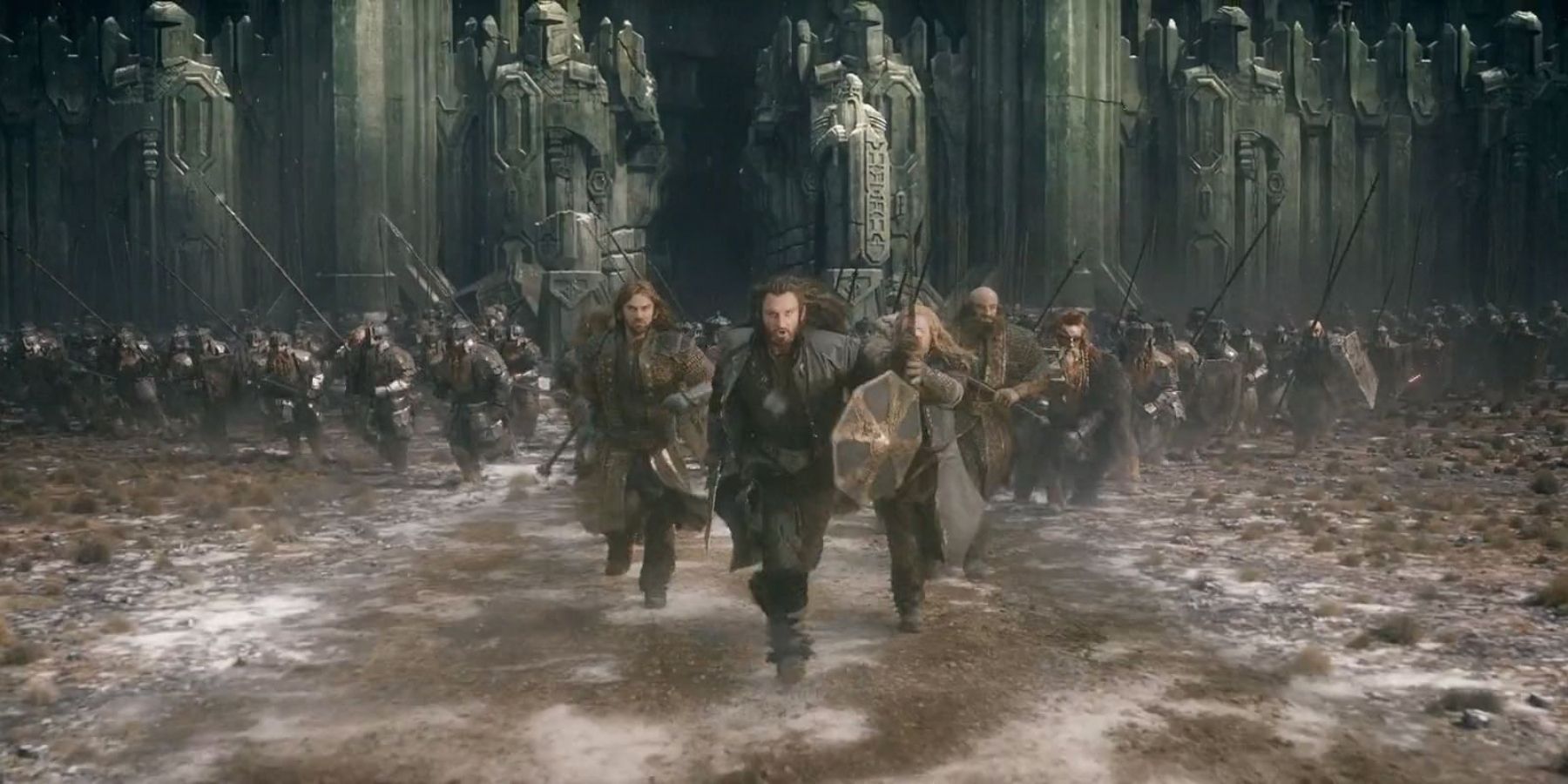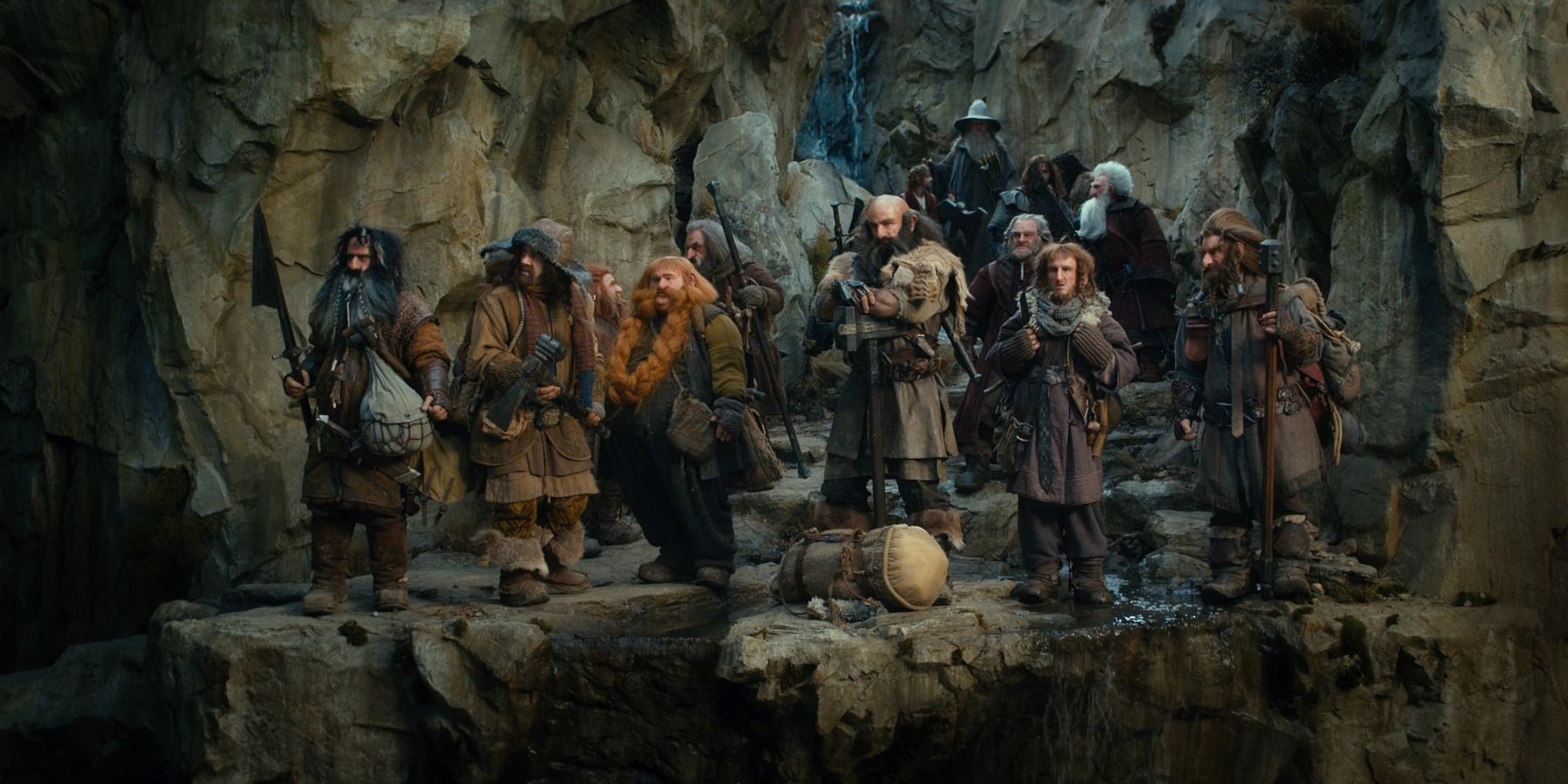In The Hobbit, Thorin’s quest to reclaim the lost dwarven kingdom of Erebor is not simple undertaking. This is a kingdom that has seen more than its fair share of ruin, death and devastation. It holds painful memories for hundreds of dwarves who once thrived there, but have since been scattered to the winds after losing their loved ones to the terrible fire of Smaug the dragon.
In order to have any chance of winning back the mountain, the dwarves in question have to go on a long and perilous journey across the mountains, through territory guarded by elves, goblins, wargs, orcs, and all manner of other hideous creatures. They have to survive in several hostile situations, make it all the way to the mountain, sneak in and try to kill the dragon before it wakes, and failing that, fight for their lives. So, knowing all of this, why did Thorin pick such a rag tag bunch of misfits for his company, rather than a host of the strongest warriors and fighters of their race?
In fact, Balin himself points out that they may not be the best choices for the task. When the dwarves arrive and gather around the poor, unsuspecting Bilbo’s dining table, the conversation very quickly turns bleak as they realize the scope of the mission they are about to undertake. And although several of the dwarves are trying to gear each other up and show their bravado, Balin states the truth of it:
“The task would be difficult enough with an army behind us, and we number just thirteen. And not thirteen of the best nor brightest.”
It is clear that the group around the table aren’t the most battle hardy of people, and that there are going to be some challenges ahead. Ori is a young dwarf, barely old enough to have gained his own independence, which is why Dori is such a mother hen around him. And Balin himself is in his later years, with meany decades having passed since his last battle. The only ones among them who can actually wield their weapons with any might are those of the royal bloodline, Thorin, Fili, Kili and Dwalin.
But from the conversation prior to this moment, it is clear that Thorin did at first reach out to several, and was expecting greater numbers than those who have appeared. They ask about the meeting in Ered Luin, and about the dwarves of the Ironhills, Thorin’s cousin Dane’s people. Thorin becomes even more forlorn as he explains: “They will not come. They say this quest is ours and ours alone.”
This isn’t unfamiliar territory for fans of the franchise, who have seen remarkable things achieved in the Lord of the Rings films with just as few people. Even the phrasing is reminiscent of King Theoden’s fears on the morning of the battle at Pelenor fields, when he looks down upon the riders who have arrived and states that those below number “less than half of what I’d hoped.” Nevertheless, they managed to win that battle, and indeed the entire war of the ring. Knowing this gives hope to the audience watching this scene of the dwarves despair. And Thorin has reasons to have chosen the group of people who are seated around him at the table. They aren’t there because he can’t get anyone better, they are there specifically because they chose to be, and this is very important to Thorin as a leader.
Above all else, Thorin values loyalty. This is one of the reasons it is so difficult to see him succumb to the dragon-sickness, and turn against those who need him, as well as become paranoid and suspecting of those he once held closest and loved deepest. Therefore, as Thorin looks around the group of dwarves who have come at his call, he doesn’t see a misfit bunch of weak or dim-witted dwarves who will simply have to suffice. Rather, he sees a loyal band of brothers whose strength lies in their hearts and their bonds with one another, rather than in their swords. In short, it doesn’t matter if they aren’t the strongest fighters in Middle Earth, or the most experienced. There's no one else that Thorin would rather go on such a quest with. He knows that they will have his back, he knows that they will fight for one another, harder than and of those who didn’t turn up when they were needed most.
Ultimately, this is also why he agrees to Bilbo coming along on the quest. Because although Bilbo has no experience as a burglar, and appears to possess none of the important qualities needed for a quest like this, Thorin recognizes that a person’s qualities can come from surprising places. He trusts Gandalf’s judgement that Bilbo will be an asset, and that there will be no one better to aid the dwarves in recovering their home. And he trusts the thirteen dwarves who have already risked it all, just by being present. They all need each other, and these are the ties that bind, the love that endures, and the strength greater than any beast or army on the face of their world.


.jpg)
